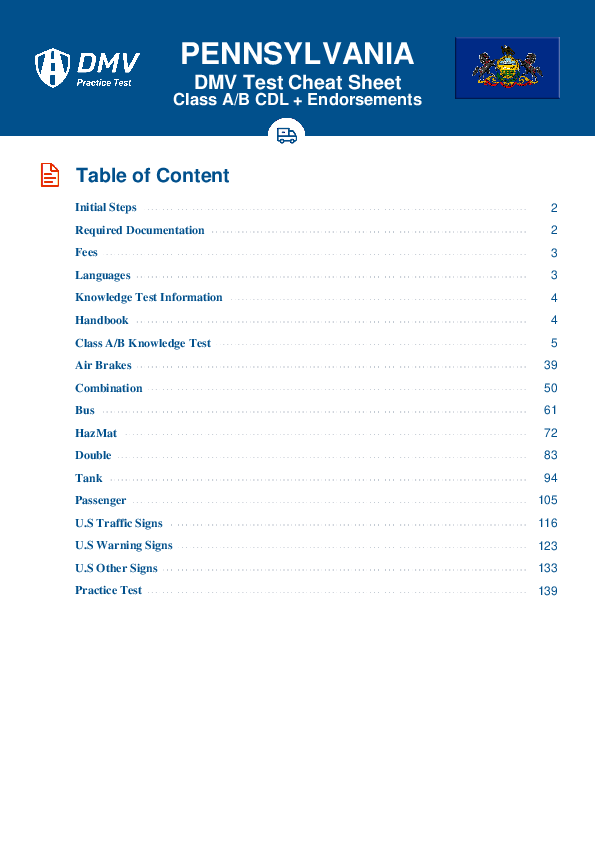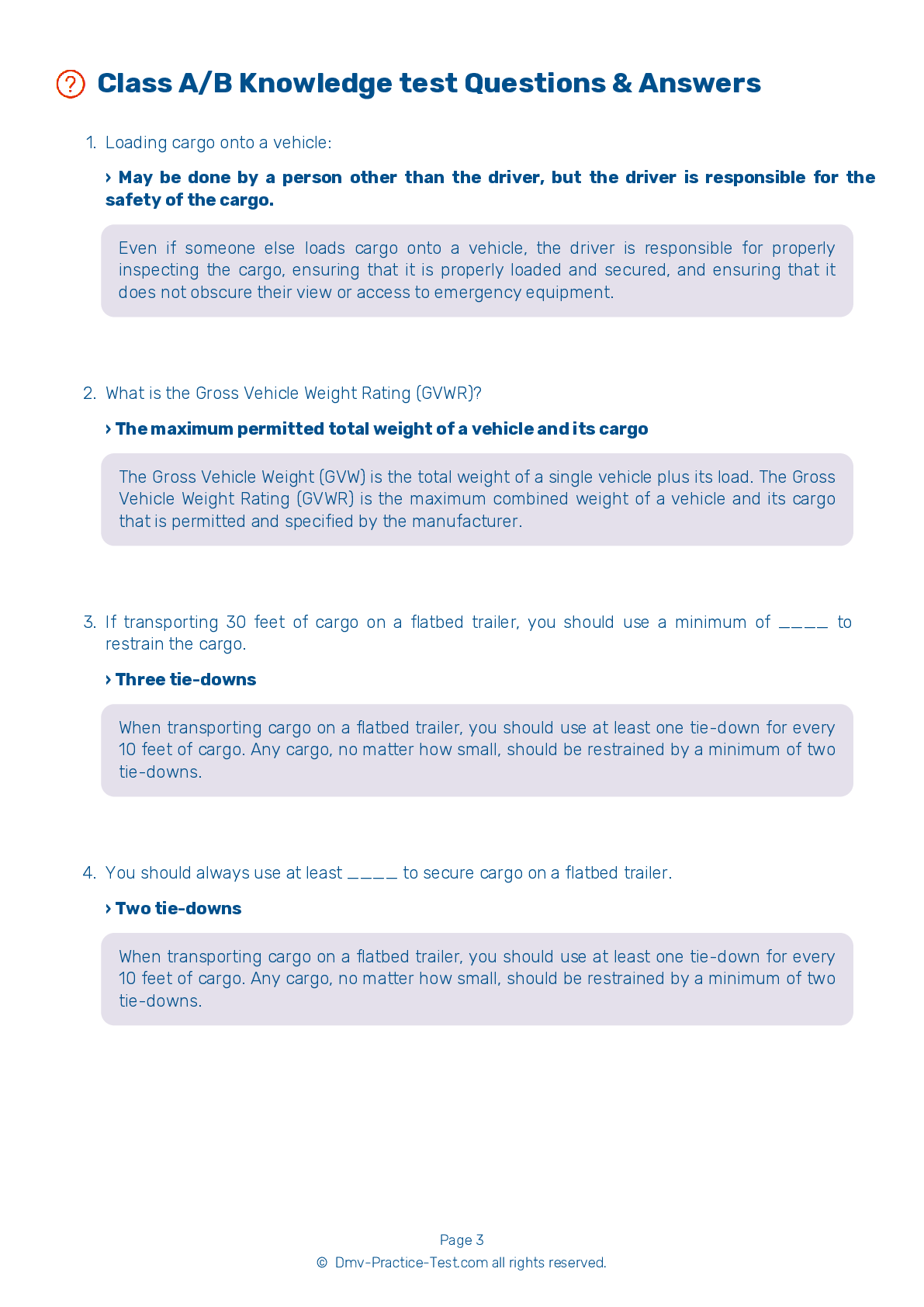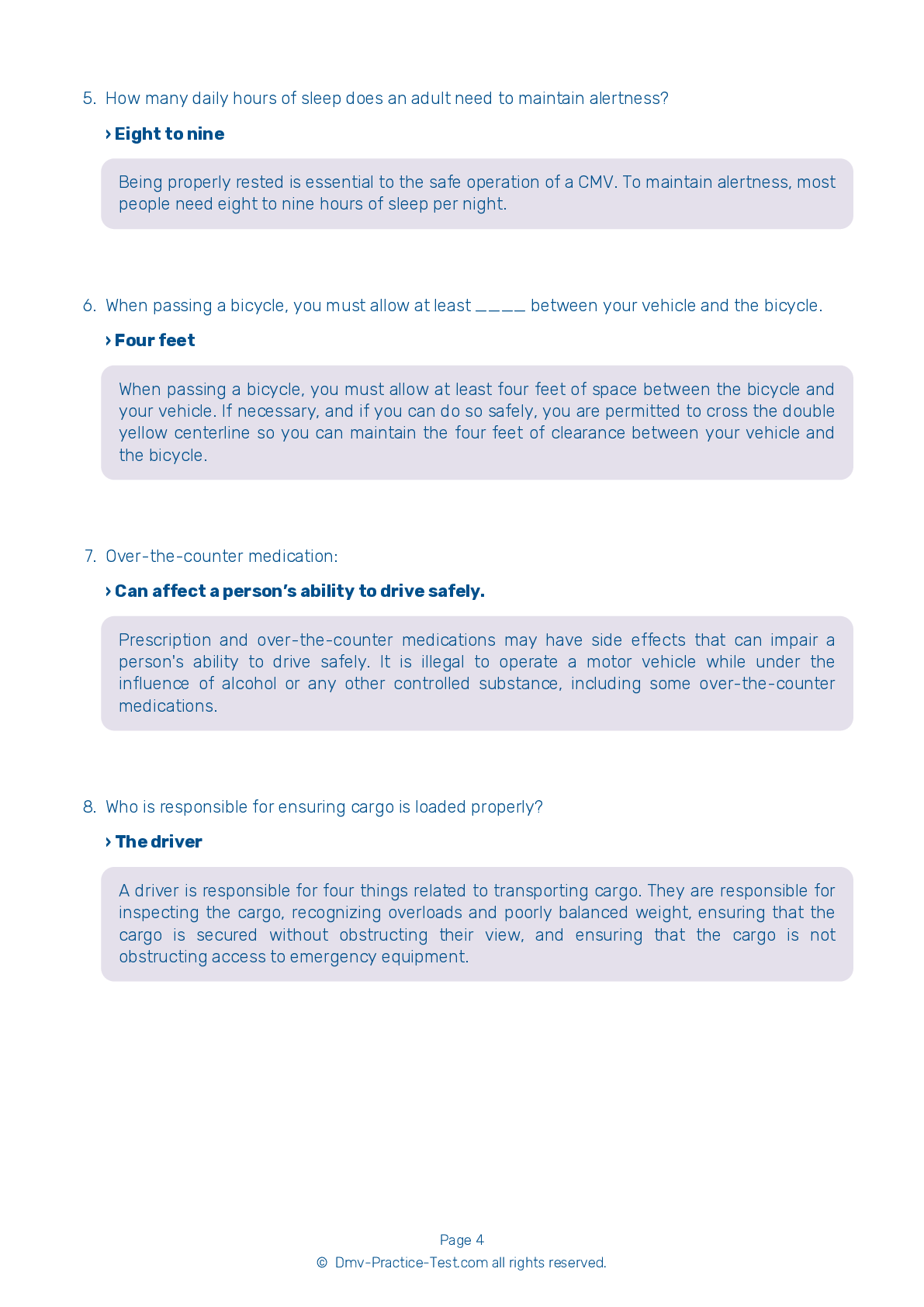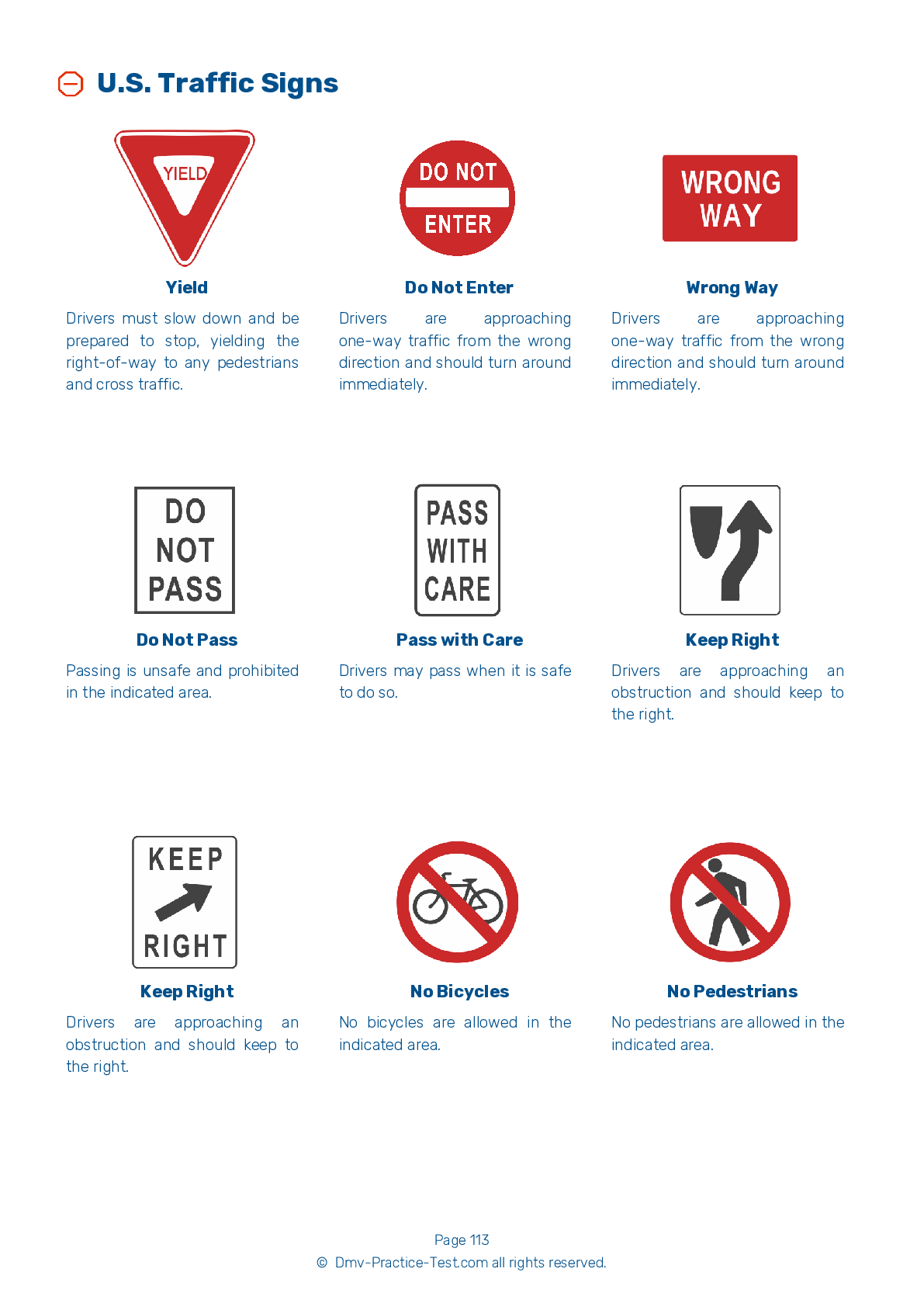Air Brakes #2
Air Brakes Endorsement Test | Pennsylvania 2026 #2 Page 2 of 4
Train for FREE online with our Pennsylvania CDL air brake test. The official exam test consists of several obligatory parts, with all of them checking your knowledge of different blocks of road rules. If you need to obtain a PA Class A/Class B driver license in 2026, practice as much as possible. Free sample tests published on our website will help you check and improve your knowledge and boost your grades. Please bear in mind that the requirements for CDL may vary from state to state.
25
20
20
7 . Pressing and releasing a brake pedal unnecessarily can:
Create a loud noise.
In an air brake system, pressing and releasing the brake pedal unnecessarily can release air from the braking system faster than the compressor can replace it.
8 . A low air pressure warning signal should activate:
When tank pressure falls below 5 psi.
In an air brake system, a low air pressure warning signal must come on if air pressure in the tanks falls below 60 psi. This warning signal may come in the form of a light, a buzzer, or a wig wag.
9 . The air storage tanks:
Hold enough air for more than 1,000 braking cycles.
In an air brake system, the air storage tanks hold enough air for brakes to be used several times if the compressor stops working.
10 . Brake fading is caused when:
Brakes are wet.
Using the brakes excessively will cause them to overheat, making them less effective. This is referred to as "fading."
11 . The ____ tells a driver how much pressure is in the air tanks.
Drum brake
A vehicle that is equipped with air brakes must also be equipped with a supply pressure gauge. This gauge tells the driver how much air pressure is in each of the vehicle's air tanks.
12 . How is the parking brake released?
By tapping the accelerator twice
In newer vehicles with air brakes, the parking brakes are controlled by a diamond-shaped yellow knob. Pull the knob out to activate the parking brakes and push it in to release them.
2026 Pennsylvania | Frequently Asked Questions
To secure a CDL Doubles/Triples endorsement in Pennsylvania, you must first have a Commercial Driver's License (CDL). Then, you'll need to pass the Doubles/Triples endorsement knowledge test. Study the CDL manual, particularly the section on Doubles/Triples. After passing, the endorsement will be added to your CDL. Remember, driving experience with these types of vehicles is recommended but not required.
To obtain a CDL Doubles/Triples license, you first need a Commercial Driver's License (CDL). Next, study the relevant sections of your state's CDL manual to prepare for the Doubles/Triples endorsement knowledge test. Once you pass this test, the endorsement will be added to your CDL. It's important to note that while experience driving these vehicles is beneficial, it's not required.
Specialized experience or training is not required for a CDL Doubles/Triples endorsement. However, it's beneficial to familiarize yourself with these types of vehicles. The key requirement is passing the Doubles/Triples endorsement knowledge test. Thoroughly studying the relevant sections of your state's CDL manual will help you prepare for this test. Once passed, the endorsement is added to your CDL.
Yes, an extra written test is mandatory to obtain a CDL Doubles/Triples endorsement in Pennsylvania. You will need to study the relevant sections of the Pennsylvania CDL manual and pass the Doubles/Triples endorsement knowledge test. Upon passing, the endorsement will be added to your existing Commercial Driver's License.
For the CDL Doubles/Triples endorsement in Pennsylvania, you do not need to showcase specific skills or maneuvers during a practical exam. Instead, you must pass a written knowledge test. This test primarily focuses on coupling and uncoupling, inspecting doubles and triples, and checking air brake systems. There is no practical skills test involved.
No, it's not permissible. In Pennsylvania, like all other states, you must have a valid CDL with a Doubles/Triples endorsement to legally operate double or triple trailers. Driving such vehicles without the appropriate endorsement can result in serious penalties, including fines, suspension of your CDL, or even jail time in some cases.
You can append the CDL Doubles/Triples endorsement to your current commercial driver's license. You do not need to initiate a new application for a separate license. However, you must pass the specific written knowledge test for this endorsement. Once passed, the Pennsylvania Department of Transportation will add the endorsement to your existing CDL.
Drivers holding a CDL Doubles/Triples endorsement in Pennsylvania must adhere to specific rules. For instance, they cannot exceed the maximum length of 100 feet for their vehicles. Additionally, they must be familiar with coupling and uncoupling procedures, as well as inspecting doubles and triples. Also, violation of traffic rules can lead to the suspension or revocation of the endorsement.
In Pennsylvania, the maximum legal weight for a vehicle is 80,000 pounds. The maximum length for a single trailer is 53 feet, while the combined length of a double/triple trailer cannot exceed 28 feet per trailer. However, these limits can vary depending on the type of road and specific local regulations. Always check with local authorities for exact restrictions.
Yes, in Pennsylvania, drivers with a CDL Doubles/Triples endorsement must follow specific safety guidelines. They should know how to couple and uncouple correctly, inspect doubles and triples, and handle emergency situations. They must also understand the dangers of "crack-the-whip" effects and prevent rollovers. Drivers should maintain safe following distances and adjust for added length and weight of the vehicle.



